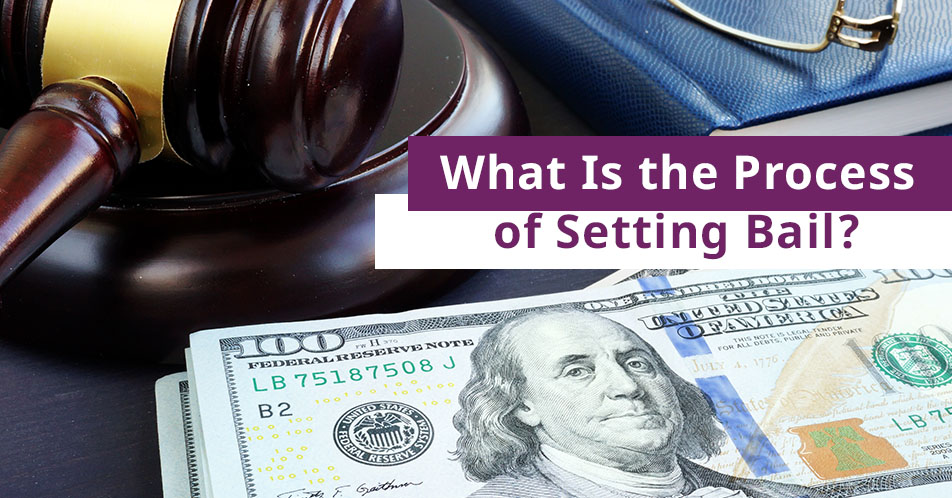
What Is the Process of Setting Bail?
Written on December 14, 2018. Posted In Uncategorized
Waiting for a loved one to have their bail set can be a nervewracking experience. Luckily, the process is fairly straightforward. Bail is designed to ensure that those who are charged with a crime show up at their followup court hearing. Thus, the amount that bail is set at is usually determined by the severity of the crime and the individual’s criminal history. Here’s what you need to know.
Getting Taken Into Custody
Once someone has been taken into custody, they need to be processed. They will be processed and often remain in jail for a few hours before they get their bail set by a judge. Even though you may know where your loved one is, you may not yet be able to bail them out. That being said, the right to have a fair and speedy bail process is part of your rights as a citizen; if a bail hearing is taking too long, a complaint can be made.
Going in Front of the Judge
When a bail hearing is held, the judge will consider all elements of the case and the individual’s criminal history. If the individual has been accused of a violent crime and could be a risk to others, it’s very likely that they will be denied bail. However, if the individual is not a potential risk to others, a reasonable amount of bail should be set.
Bail may be unusually high if the crime is a serious one or if an individual has shown a prior history of not showing up to their court dates.
Bail may also be high if an individual is considered to be a flight risk. If someone has a substantial amount of assets and will be facing a serious crime, a judge may consider them likely to flee.
Once bail has been set, an individual can then be either bailed or bonded out. If the individual can pay for the full bail amount, they can be bailed out directly; otherwise, they may need the help of a bonding company.
Appealing Your Bail
If your loved one feels as though their bail has been set unfeasibly high, it’s possible to appeal. Appealing bail may get it lowered, but you will need to show why the bail should be lowered. A lawyer is advised in this scenario. A common argument for appealing bail is that an individual may have strong ties to the community, such as children in a local school, or a long-term career within the area.
Though appealing bail is possible, it takes longer, and your loved one will need to spend that time in jail. It may be best to get a bond, as it will cost less and will get them out immediately. At Free at Last Bail Bonds, we are fully committed to reuniting families. If you or a loved one needs our services, we are here for you 24 hours a day at 470-410-3409.

